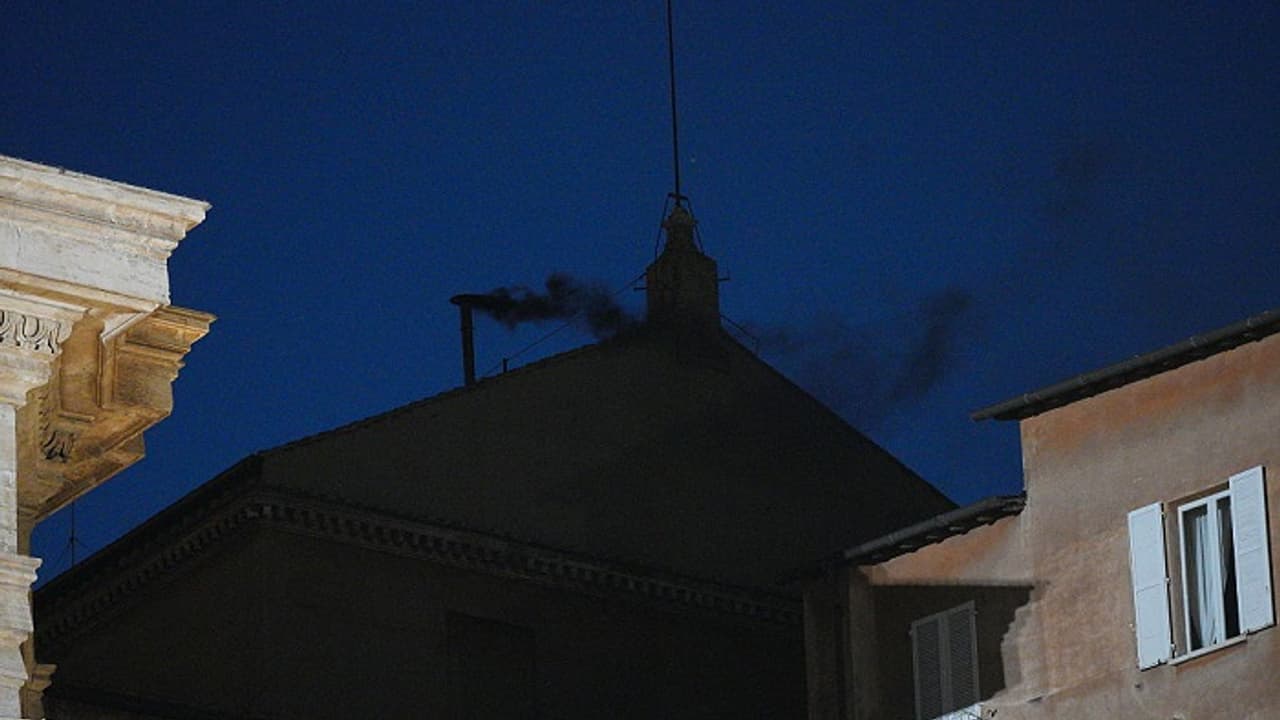Following the inconclusive vote, the 133 cardinal electors—those under the age of 80 who are eligible to participate—returned to their temporary residence at the Santa Marta guesthouse inside Vatican City.
The first day of the much-awaited papal conclave ended without the election of a new pope, as black smoke rose from the chimney of the Sistine Chapel on Wednesday (May 7) evening. The smoke, a centuries-old symbol used to communicate the outcome of the voting process, indicated that no candidate received the required two-thirds majority from the College of Cardinals.

Following the inconclusive vote, the 133 cardinal electors—those under the age of 80 who are eligible to participate—returned to their temporary residence at the Santa Marta guesthouse inside Vatican City. The cardinals are expected to resume voting on Thursday morning, with up to four rounds of balloting held daily until a new pope is chosen.
This conclave, convened after the death of Pope Francis on April 21, is already being described as one of the most diverse and globally representative in the Roman Catholic Church's history. More than 80% of the electors—108 of the 133 cardinals—were appointed by Pope Francis during his 12-year papacy.
"It's one of the most diverse that we've had in the history of the Church," said Susan Timoney, professor at the Catholic University of America, speaking to CNN ahead of the conclave.
During his time as pontiff, Francis appointed more than 20 cardinals from countries that had never before been represented in the conclave, including Mongolia, Laos, Mali, and Papua New Guinea. His efforts were seen as part of a broader strategy to shift the Church's focus beyond Europe and towards the developing world, where Catholicism continues to grow rapidly.
As the conclave enters its second day, speculation continues about who might emerge as the 267th pope. Vatican watchers say the outcome remains wide open, with no clear frontrunner. Until a new leader is elected, the cardinals remain sequestered from the outside world, bound by centuries-old tradition and solemn oaths of secrecy.


